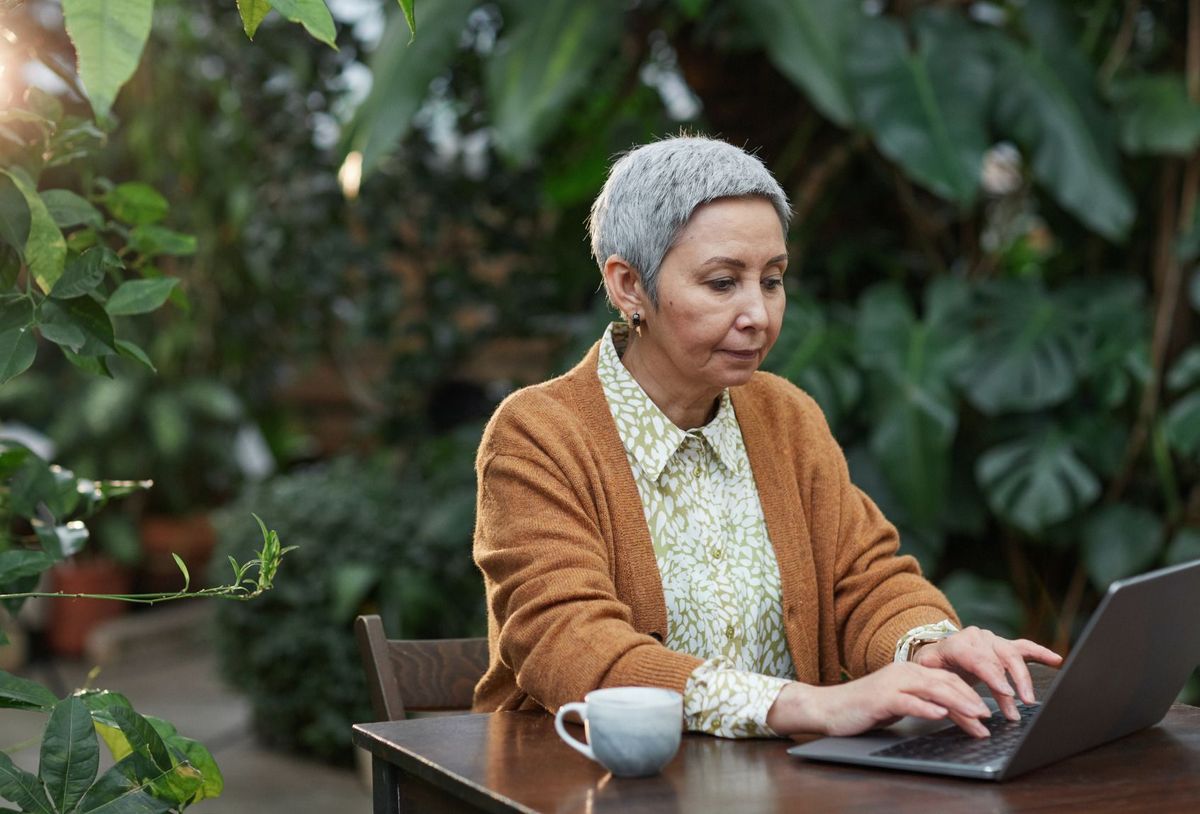Senior Citizens Face Mental and Financial Stress, Especially Women
Discover what our survey of Seniorly users revealed about gender and aging in America in the early months of 2021: a gender gap in stress and connectedness.

While this has been a challenging year for many, for senior citizens the pandemic has been particularly stressful. Social isolation, high mortality rates from COVID-19, and financial devastation from the pandemic have landed hard on seniors around the world.
In this analysis, we decided to survey our members at Seniorly on their mental and financial well being. These individuals are based in the United States and are using our services to find a senior living community.
We found that most seniors in our survey considered themselves well supported by their friends and community and were generally optimistic about their mental health and finances. On average, seniors in the United States have been the picture of resilience as we emerge from the pandemic.
However, on nearly every metric, female seniors reported themselves to be struggling compared to their male counterparts. From finances to mental health, many more women than men note that they are dissatisfied, and stressed about finances and support. When it comes to enjoying later life, there appears to be a gender gap in connectedness, and women are more likely to be stressed during their golden years.
Methodology
Before diving in, let’s spend a moment reviewing the data and methodology. Between January 2021 and April 2021 we fielded a monthly survey of Seniorly members (people searching for assisted living), with approximately 500 responses per month. These questions, by and large, focused on how U.S. seniors are feeling about their well-being and quality of life. Each chart below shows the longitudinal trends in responses over the last four months, followed by an analysis of how responses split by gender for the most recent month (April).
Mental Health
To begin, let’s review the overall mental health snapshot of Seniorly users. The following chart shows the response to the question “Do you feel mentally healthy?” during the first four months of 2021.

Despite a very trying year, 84% of seniors reported that they feel mentally healthy, trending up slightly from the prior month. Just 8.0% of respondents reported not feeling mentally healthy, the lowest since we started the survey.
However, digging slightly deeper into the data on those who do not feel mentally healthy, a more nuanced picture emerges. Women are more than twice as likely as men to report they do not feel mentally healthy:

9.7% of all women surveyed reported not feeling mentally healthy, compared to just 4.5% of men. This data point is the first of a pattern of women reporting more stress, financial worry, and mental distress than men.
Emotions
As the pandemic has waned this year in the United States, how have the emotions of senior citizens changed over the last four months? The following chart shows the percentage of respondents who reported each emotion as being their predominant emotion of the last week:

Notably, since January the Contented emotion has surged from 29.1% of respondents to 38.0%. Angry is also down substantially from 5.3% to 1.9% of respondents, and Worried is down substantially as well. Other emotions like Excited, Happy, Lonely, Restless, and Sad have remained relatively stable.
While the most common feeling among seniors in our survey is Contented, how prevalent is this feeling in men versus women? As of April 2021, men are 35% more likely to report being Contented than women.

To wrap up this section, let’s take a look at what seniors self identify as the biggest stressors in their lives. From COVID-19, to vaccines, to caring for an ailing spouse, to politics, these are a sample of what seniors worry about:

Support
Shifting gears slightly from mental health, let’s look at community support received by seniors. How many seniors feel they have an adequate support system and is there a persistent gender gap as we saw with mental health?
The chart below shows the percentage of Seniorly users who report they have enough support and friendship:

Most recently, 61.4% of seniors reported that they had the perfect amount of support, while only 4.1% say they do not receive any support from anyone. Practically no one says they would like less support.
However, 34.1% of respondents say they would like more support. How common is this sentiment when split by gender?

Among women, 38.2% would like more support, while only 24.9% of men respond they would like more support. Just as more women report they struggle with their mental health, more women are asking for more support during their senior years.
What kind of support are seniors receiving from their communities? The following chart shows Seniorly’s users assessments of their connection with their communities:

Only 22.8% percent of respondents feel strongly connected to their communities, indicating there is strong room for improvement in terms of community building to better support seniors. 53.0% of respondents do feel mildly connected to their communities, however.
Similar to other gender dynamics highlighted in this article, men are more likely to report that they feel strongly connected to their communities than women do.

Finance
Finally, let’s examine how seniors view their personal financial situations and get their thoughts on affording the costs of elder-care. The following chart shows seniors’ assessments of how their financial positions have changed during this year:

April saw a large spike in the percentage of seniors who saw an improved financial position, rising from 12.9% to 18.1% of respondents. The vast majority of seniors (69.2%) reported their finances stayed the same, a number that’s held stable. There was also a sizable decrease in the number of Seniorly members who reported a worsened financial position.
However, the troubling pattern of women having a tougher senior experience than men continues. The next chart shows the percentage of women versus men that say their financial position has improved:

Nearly twice as many men versus women said that their financial position improved. As the stock market has roared back and investment accounts have been replenished, these market gains may have been distributed unevenly by gender.
Lastly, the costs of senior care continue to weigh on Seniorly users. The chart below shows the percentage of respondents categorized by their level of concern regarding senior care.

In April, 72.5% of respondents reported that they were concerned with the cost of senior care, a number that’s been fairly stable throughout the year. As with prior charts, however, women have reported higher level concerns over the cost of care than men.

Conclusion
The latest analysis from Seniorly paints both an encouraging and discouraging picture of seniors. On one hand, most senior citizens consider themselves mentally healthy, contented, well supported by their community, and in a stable financial position. On the other hand, a sizable minority report their concern over their own mental health, community support and finances.
According to this analysis, women are much more likely than men to be in this stressed and concerned cohort of seniors. A number of scientific studies have posited that elderly women are more susceptible to depression and that women score lower than men on most indicators of well being and mental health due to higher levels of poverty and from taking on more household labor and stress. The stress of retirement, old age and finding a community in which to live appears to be landing with greater force upon women.
Arthur Bretschneider is CEO and Co-Founder of Seniorly. As a third generation leader in the senior living industry, Arthur brings both deep compassion and a wealth of practical experience to his work at Seniorly. Arthur holds an MBA from Haas School of Business and has been featured in the New York Times and Forbes Magazine as a thought leader in the senior living space. Arthur is a passionate and vocal advocate for improving the lives of older adults through community, and believes strongly that structured senior living environments can positively impact the aging experience.
To learn more about Seniorly's editorial guidelines, click here.
Sign up for our Healthy Aging Handbook
Seniorly’s Senior Living experts created a comprehensive handbook to help people age happily while ensuring they love where they live. Enter your email address below to receive your copy and learn more about Healthy Aging and Senior Living.*
*By submitting your email address above, you consent to receive occasional email communications from Seniorly, including educational content and tips, newsletters, and other relevant updates and offerings. You can unsubscribe at any time and we will never sell or distribute your email address to a third party. You can view our Privacy Policy here.
